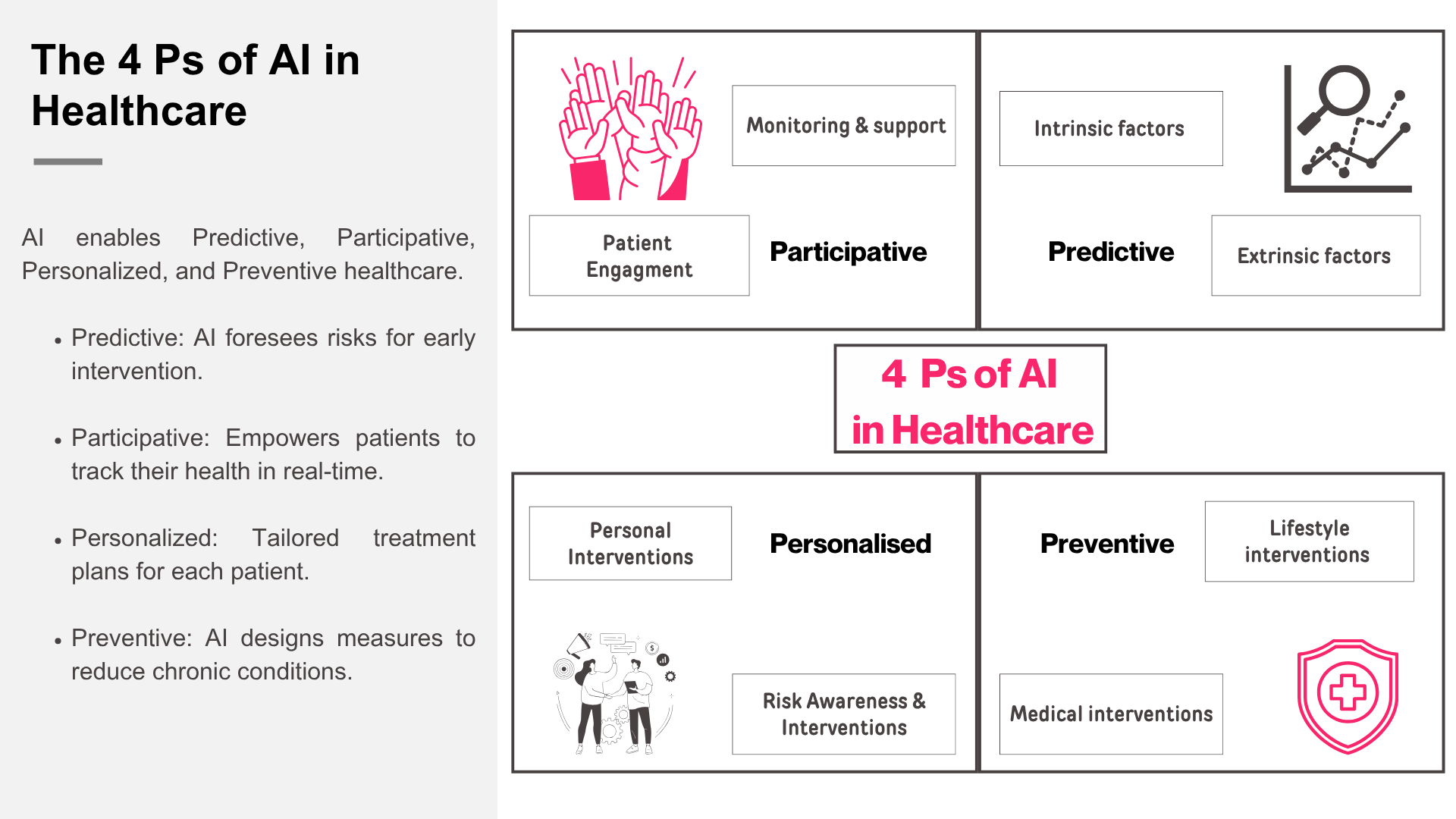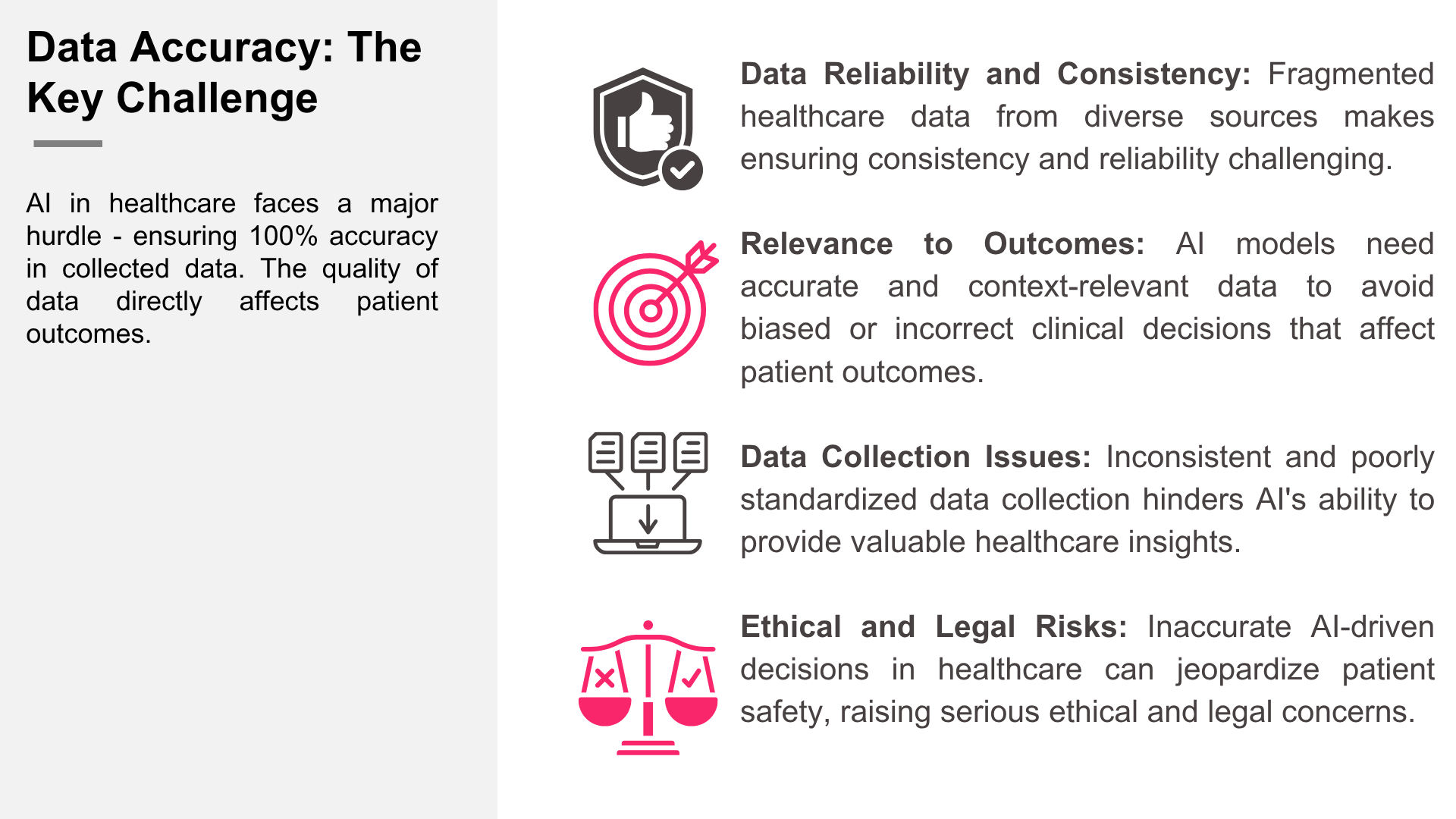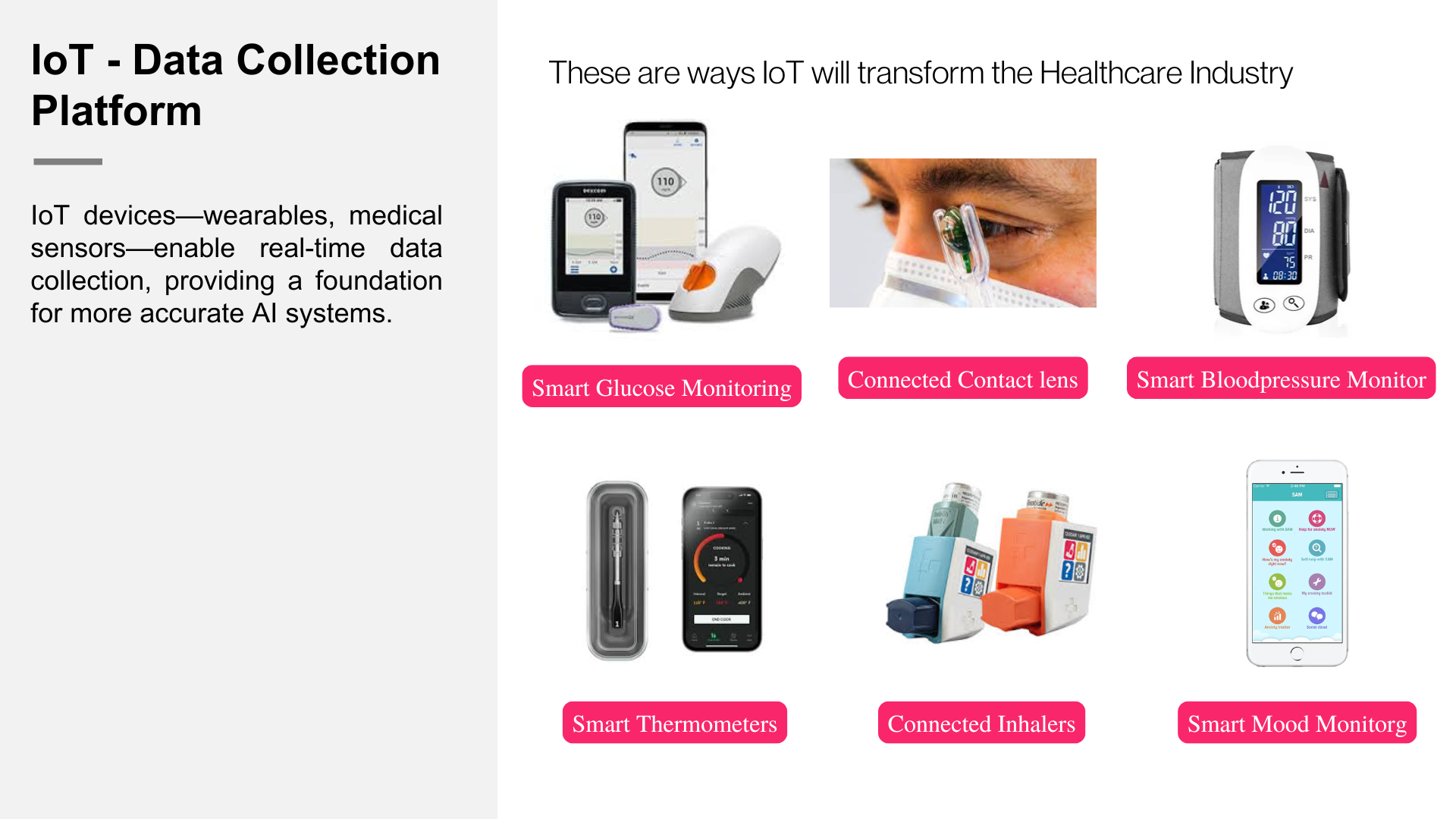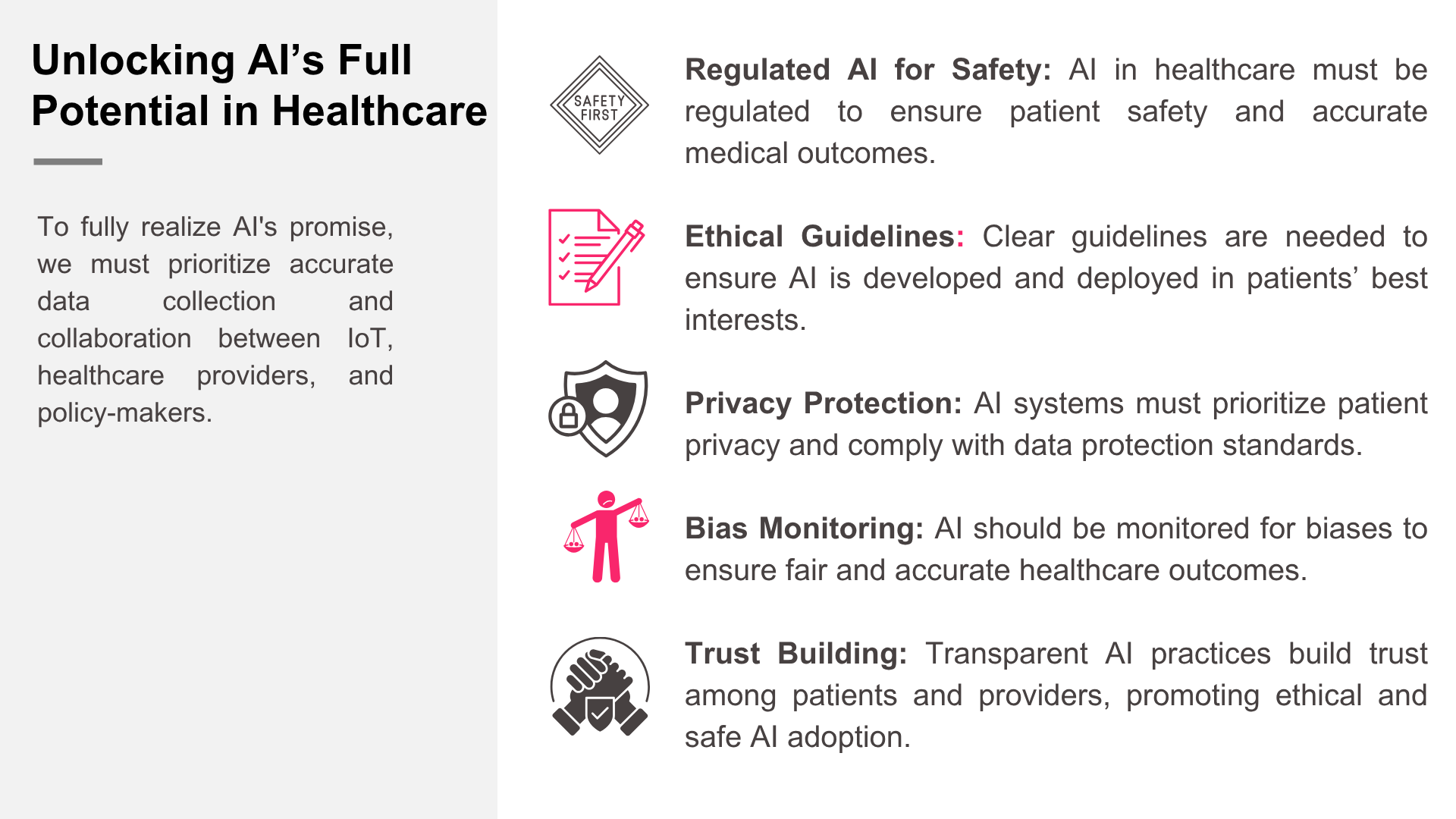Summary
AI in healthcare is evolving into a system that predicts illness before it strikes, personalizes care for every individual, and keeps patients actively engaged through real-time insights. But this future depends entirely on the quality of data feeding these models—something today’s fragmented and inconsistent healthcare records cannot guarantee.
As IoT devices like smart monitors and wearables begin capturing continuous, accurate health information, AI becomes far more reliable.
With strong regulations, ethical safeguards, and bias monitoring, this data-driven ecosystem can finally unlock safe, trustworthy, and transformative healthcare.

Exhibit 1: Healthcare is moving toward a model built on four powerful pillars of AI: Predictive, Preventive, Personalized, and Participative care. AI predicts risks using intrinsic and extrinsic factors, enabling early action. It personalizes interventions based on individual needs. It empowers patients to participate through continuous monitoring and engagement. And it drives prevention by guiding lifestyle and medical interventions well before diseases escalate.

Exhibit 2: AI’s biggest barrier in healthcare is the accuracy of the data it learns from. Fragmented records, inconsistent collection methods, and poor standardization weaken reliability and distort clinical outcomes. When data lacks context or quality, AI decisions risk becoming biased or unsafe, raising serious ethical and legal concerns. Ensuring clean, consistent, and relevant data is therefore critical to protecting patient outcomes and trust.

Exhibit 3: IoT devices are becoming the backbone of real-time health data collection, capturing accurate, continuous insights that strengthen AI systems. From smart glucose monitors and connected contact lenses to blood pressure cuffs, inhalers, and mood trackers, these tools bring health monitoring into everyday life. By generating reliable, real-world data, IoT enables more precise predictions, timely interventions, and truly personalized care.

Exhibit 4: Unlocking AI’s true impact in healthcare depends on accurate data and close collaboration between IoT systems, clinicians, and policymakers. For AI to be safe and trustworthy, it must operate within strong regulatory frameworks, follow ethical guidelines, and protect patient privacy. Continuous bias monitoring ensures fair outcomes, while transparency helps build the trust needed for widespread, responsible adoption.
Camomile’s Operational Excellence Practice
We offer comprehensive services for hospitals and healthcare companies in the areas of,
If you want to understand how your organisation can deploy AI-enabled patient engagement solutions cost-effectively and accelerate growth, reach out to raghava@camomilehealthcare.com.
Follow our Camomile Healthcare’s newsletter, The Healthcare Industry Pulse, for more insights into the healthcare industry.